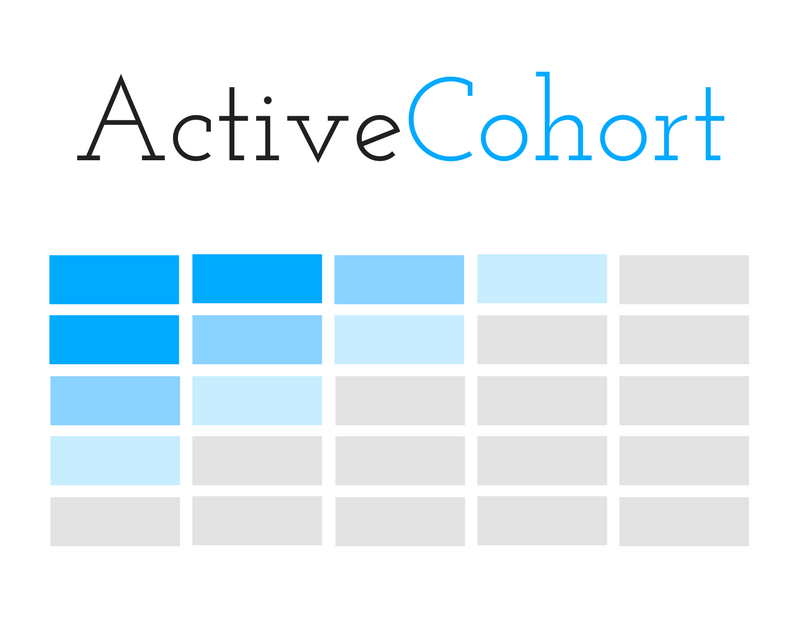Time-based cohort reports for ActiveRecord.
This project is in early beta pending the completion of issues in milestone 1.0.0. The API is subject to change until that milestone is reached.
From Wikipedia.
Cohort analysis allows a company to “see patterns clearly across the life-cycle of a customer (or user), rather than slicing across all customers blindly without accounting for the natural cycle that a customer undergoes.” By seeing these patterns of time, a company can adapt and tailor its service to those specific cohorts.
ActiveCohort is built to work in a Rails application.
gem install ActiveCohortOr, in your gemfile
gem 'ActiveCohort'And then run
bundle install# Instantiate a new ActiveCohort instance
cohort = ActiveCohort.new(some_users, activation_criteria, interval: 'week')
# Let it fly!
cohort.generate_report
# => [["", "Week 0", "Week 1", "Week 2", "Week 3", "Week 4", "Week 5"],
# ["1/2", "43.0%", "22.1%", "2.7%", "0.5%", "0.0%", "0.0%"],
# ["1/9", "39.9%", "18.6%", "7.6%", "0.0%", "0.0%"],
# ["1/16", "42.2%", "3.1%", "0.0%", "0.0%"],
# ["1/23", "31.8%", "17.0%", "2.3%"],
# ["1/30", "35.7%", "19.3%"]]In order to create a cohort report you need a collection of records you want to report on (e.g., users, orders, etc.) and a lambda that will be used to iterate over the collection to determine the activation rate for each period of time. Don't worry, the second part is less complex than it sounds.
Create an ActiveRecord::Relation collection of records that will serve as the basis of your cohorts.
For instance, if you're tracking user who make a purchase after creating an account this would be a collection of the users you want to include.
users = User.where('created_at > ?', 30.days.ago)ActiveCohort will iterate over this collection for each interval of time on the report (days, weeks, etc.) and needs a way to tell how many of the records have "activated" (the conversion percentage that shows up on the report).
Create a lambda (just a method/code block that we can pass around) that will take a record, start date, and end date and return a boolean indicating whether it's activated. It must accept three inputs in this order, their names don't matter.
activation_criteria = lambda do |user, start_at, end_at|
user.orders.where(created_at: start_at..end_at).present?
endNow just plug your records and lambda into a new instance:
cohort = ActiveCohort.new(users, activation_criteria, interval: 'week')
cohort.generate_report
# => [["", "Week 0", "Week 1", "Week 2", "Week 3", "Week 4", "Week 5"],
# ["1/2", "43.0%", "22.1%", "2.7%", "0.5%", "0.0%", "0.0%"],
# ["1/9", "39.9%", "18.6%", "7.6%", "0.0%", "0.0%"],
# ["1/16", "42.2%", "3.1%", "0.0%", "0.0%"],
# ["1/23", "31.8%", "17.0%", "2.3%"],
# ["1/30", "35.7%", "19.3%"]]The report is represented by a matrix.
In addition to the records and criteria lambda, ActiveCohort also accepts of hash that may contain the following options:
start_at - The date at which to begin the analysis. Default: 30 days ago.
interval - A String representation of the interval to run the analysis over (e.g, day, week, etc.) For instance, 'week' would result in a week-over-week analysis. Default: 'day'.
interval_timestamp_field - A String representation of the timestamp field on the cohort records to be used to offset between intervals. Default: 'created_at'.
Please open an issue for support.
Please contribute using Github Flow. Create a branch, add commits, and open a pull request.
